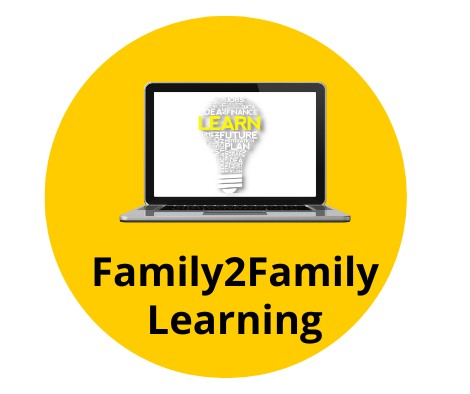
In this section you will learn about the history and background of postsecondary education options. You will find out how postsecondary education programs for students with disabilities began, along with the laws that support their development. Comprehensive Transition Programs are also described as well as programs in Florida. Family2Family films in this section highlight how parents began planning for college.
- gives us a definition of Comprehensive Transition Programs (more on that later) and defines how students who attend programs can be eligible for federal financial aid.
- provides us an opportunity to fund projects that demonstrate effective education models,
- designates a national center to coordinate these projects.
- requires schools to provide free and appropriate public education for all students, including those with ID.
- expects teams that include the student, family members, school personnel, agencies, and other stakeholders to plan for transition from high school to adulthood.
- requires that one of the student’s goal areas in the transition planning is postsecondary education.
- promotes early planning for postsecondary education to make sure students have an easier transition to a postsecondary education environment.
- Are civil rights laws for individuals with disabilities.
- Guarantee students with disabilities access to education and other supports and services with reasonable accommodations.
- Removes barriers and guarantees reasonable accommodations so that persons with disabilities have an opportunity to participate.
- Are housed on a participating college, university, technical school or career center campus.
- May offer a degree, certificate, credential, non-degree, non-certificate program, or other exit documents.
- Are provided to students who attend the institution in person.
- Have been developed to specifically support students with ID.
- Support continued academic, career and technical, and independent living to prepare students for future employment.
- Have personnel that serve as advisors to students.
- Have a structured curriculum (Papay, 2019).
The purpose of the Act is to “increase independent living, inclusive and experiential postsecondary education, and employment opportunities for students with intellectual disabilities through degree, certificate, or non-degree programs and to establish statewide coordination of the dissemination of information regarding programs and services for students with disabilities. It is the intent of the Legislature that students with intellectual disabilities and students with disabilities have access to meaningful postsecondary education credentials and be afforded the opportunity to have a meaningful campus experience.” (FS §1004.6495(2))
How fortunate we are to have state legislation that supports students with ID in their postsecondary education goals.
FPCTP:
- Created the Florida Center for Students with Unique Abilities (FCSUA) at the University of Central Florida (UCF) in Orlando, FL (https://fcsua.org).
- Charges the FCSUA with managing all the applications to be a Florida Postsecondary Comprehensive Transition Program (FPCTP) .
- Tasks the FCSUA with evaluating and approving programs to be a FPCTP.
- Sets criteria or requirements for FPCTP approval.
- Awards scholarships for students to attend approved FPCTP programs.
- Awards funding to develop new FPCTP programs.
- Awards funding to enhance existing programs.
- Ensures accountability and quality among FPCTP approved programs.
The Florida Postsecondary Comprehensive Transition Program Act sets the following requirements:
- In order to enroll in a FPCTP, applicants must have an intellectual disability and must have exited high school-K-12 grades.
- FPCTPs verify students’ eligibility to enroll in programs.
- FPCTPs must prove that the institution has a federally approved CTP, documentation of the submission of an application for federal approval of a program, or documentation that the institution intends to submit an application during the following academic year of FPCTP approval.

